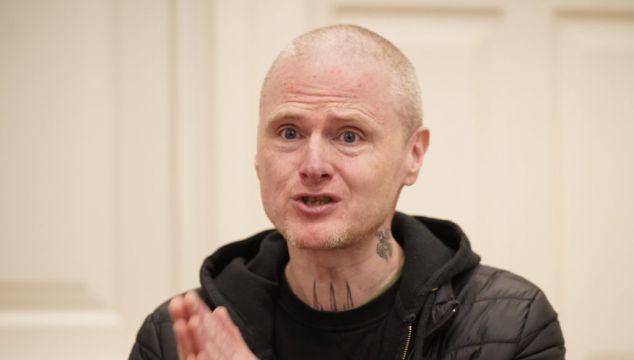A protest was held outside Dublin’s City Hall on Monday evening over the eviction faced by dozens of tenants who fear they will not be able to find affordable accommodation.
Up to 100 tenants living in 35 flats in the Tathony House apartment complex in Dublin 8 were served eviction notices at the end of October.
They were told they will be evicted next June in order for the building can be sold.
Due to soaring rents, tenants say it is not clear what will happen to them once they are evicted – and due to a lack of affordable housing options they could end up homeless.
At Monday's protest, organised by People Before Profit, tenants called for the council to work with an approved housing body to purchase the bloc.
The small group of demonstrators chanted “Dublin city council, stop mass evictions” and heard from speakers including TDs Brid Smith and Richard Boyd Barrett.
Tathony House tenant James O’Toole, who is a community employment worker and a member of People Before Profit, said wages do not give people the means to afford to rent in Dublin.
“I’d like to ask the council and the Government what they think someone on €247.50 (a week) is supposed to do when they’re evicted in the new year,” he told the protest.
Speaking at a Raise the Roof event recently, Mr O’Toole said the apartments house healthcare workers and builders who are worried they will end up on the streets.
“We are the people that work in the city. We are the people that work in our community. And yet we can’t find anywhere to live.”
The case has triggered criticism of the Government’s winter eviction ban, which stops people from having to vacate their rented accommodation until the ban ends in April.
Notices of termination can be issued but tenants do not have to move out under rules which came into force in November.
It has also raised the limitations of the Tyrrelstown amendment in the Residential Tenancies Act, which aims to prevent mass evictions of more than 10 units.
Under this clause, landlords can evade the ban on mass evictions under an “undue hardship” clause, which has been called a loophole.
October represented a fourth month in a row that official figures showed there was a record high number of homeless people – with 11,397 people, including 3,480 children, recorded as living in emergency accommodation.







